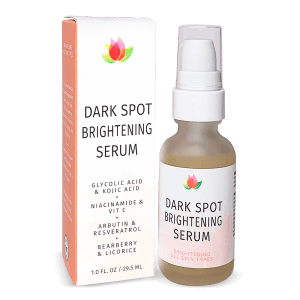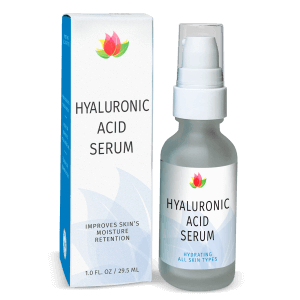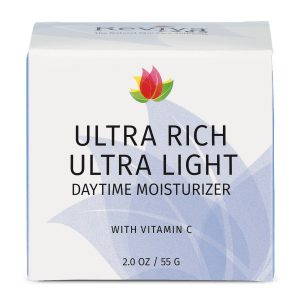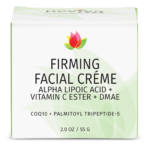Reviva Labs, Skin Care
Caring for Sensitive Skin During Winter
The chill of winter might bring cozy sweaters and hot drinks, but for sensitive skin, it can also mean redness, dryness, and irritation. Studies show that up to 60% of people report experiencing heightened skin sensitivity during colder months, largely due to environmental changes like low humidity and biting winds. But winter doesn’t have to be a season of discomfort for your skin. With the right care, your sensitive skin can stay calm, hydrated, and healthy—even when the weather is anything but gentle.
Why is Winter Harsh on Sensitive Skin
Cold air holds less moisture than warm air. Add to that indoor heating, hot showers, and harsh winds, and you have a perfect storm for stripping the skin of its natural oils. Sensitive skin lacks resilience to these changes, often reacting with dryness, redness, itching, and even flaking. The skin barrier—your body’s first line of defense—takes a beating during the winter months, becoming less effective at keeping irritants out and hydration in.
Those with sensitive skin may also be more prone to conditions like rosacea, eczema, or dermatitis, all of which can worsen when the mercury drops. Understanding these challenges is the first step in building a winter-proof skincare routine that soothes and protects.
Ingredients That Love Sensitive Skin
Gentle Hydrators
When your skin is crying out for moisture, the right ingredients can make all the difference. Look for humectants like glycerin and hyaluHyaluronic Acid Serumronic acid. These powerhouses draw water into the skin, plumping it from within. Hyaluronic acid, in particular, can hold up to 1,000 times its weight in water, making it a winter must-have.
For deeper hydration, incorporate ceramides. These lipid molecules help repair the skin barrier, locking in moisture and strengthening its defenses against the elements. Products with squalane or jojoba oil are also excellent for adding a layer of protection without clogging pores.
Calming Agents
Sensitive skin often reacts to the slightest irritation, which is why soothing ingredients are a necessity. Aloe vera, colloidal oatmeal, and centella asiatica (also known as cica) calm redness and inflammation, restoring a sense of balance to stressed skin. If you’re dealing with persistent redness, products with niacinamide (vitamin B3) can reduce blotchiness while improving the skin’s barrier function.
Barrier Builders
Winter is no time to skimp on protection. Shea butter, argan oil, and lanolin provide a protective layer over the skin, shielding it from moisture loss and environmental aggressors.
Ingredients to Avoid
Harsh Exfoliants
While exfoliation can help remove dead skin, harsh scrubs or strong chemical exfoliants like high concentrations of glycolic acid or salicylic acid can aggravate sensitive skin. Instead, opt for gentle alternatives like lactic acid, which provides mild exfoliation while hydrating the skin.
Fragrance and Alcohol
Fragrance—whether natural or synthetic—is one of the top irritants for sensitive skin. Alcohol-based products can also strip the skin of its natural oils, leaving it dry and vulnerable. Check ingredient labels and steer clear of denatured alcohol and perfume.
Sulfates and Astringents
Foaming cleansers often contain sulfates, which can leave sensitive skin feeling tight and dry. Similarly, astringents like witch hazel or denatured alcohol can exacerbate irritation. Choose a cream or gel-based cleanser with soothing ingredients instead.
Building a Winter Routine
Start with a Gentle Cleanser
Cleansing is crucial, but it should never leave your skin feeling stripped. Use a sulfate-free cleanser enriched with hydrating ingredients like glycerin or ceramides. Avoid using hot water—it can dehydrate your skin even further.
Add a Hydrating Serum
After cleansing, apply a serum with hyaluronic acid to boost your skin’s hydration levels. If your skin is particularly reactive, choose one with niacinamide for added calming benefits.
Lock in Moisture
A rich, fragrance-free moisturizer is non-negotiable during winter. Look for formulations with ceramides, shea butter, or squalane. If your skin is very dry, consider layering an oil over your moisturizer for extra protection.
Protect with SPF
Even on cloudy winter days, UV rays can damage your skin. A broad-spectrum sunscreen with SPF 30 or higher is essential. Choose a mineral-based formula with zinc oxide or titanium dioxide, as these are less likely to irritate sensitive skin.
Weekly TLC
Incorporate a weekly hydrating mask to give your skin an extra moisture boost. Masks with ingredients like aloe vera, glycerin, or colloidal oatmeal can work wonders for replenishing hydration and calming irritation.
Lifestyle Adjustments for Winter Skin
Your skincare routine is only part of the equation. A few lifestyle tweaks can also keep your sensitive skin happy during winter.
- Humidify Your Space: Running a humidifier indoors can add much-needed moisture to the air, preventing your skin from drying out.
- Stay Hydrated: Drinking plenty of water supports your skin’s hydration from within.
- Limit Hot Showers: As tempting as they are, hot showers can strip your skin of its natural oils. Opt for lukewarm water instead.
- Choose Fabrics Wisely: Wool and synthetic fabrics can irritate sensitive skin. Stick to soft, breathable materials like cotton for scarves and sweaters.
When to Seek Professional Help
If your sensitive skin becomes persistently red, itchy, or flaky, it may be time to consult a dermatologist. Conditions like eczema or rosacea can worsen during winter and may require targeted treatment.
A Gentle Winter Glow
Caring for sensitive skin in winter doesn’t have to be complicated. By choosing gentle, hydrating products and making small adjustments to your routine, you can protect your skin from the harshness of the season. Keep it simple, listen to your skin, and treat it with the kindness it deserves.










